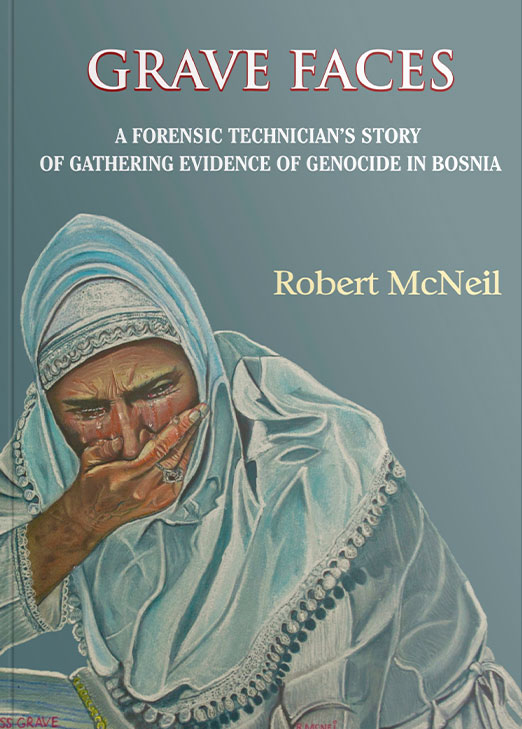
This book is the story of author’s experiences as a forensic technician, gathering evidence of war crimes, crimes against humanity, and genocide in Bosnia and Kosovo, from 1996 to 2002, during the most extensive international forensic investigation in history conducted by the United Nations. ‘Grave Faces’ is unique in that it’s the first book written by an experienced technician who was involved in what has emerged as the most extensive forensic investigation in history. The book is based on the author’s personal experiences recorded as his memoire. Author is asking universal questions of humanity trying to understand the level of cruelty and barbarity perpetrated against so many innocent civilian men, women and children in a war of aggression against Bosnia and Herzegovina and Kosovo.
ABOUT THE AUTHOR:
Robert McNeil MBE, FAAPT is a Glasgow based painter, and now an Affiliate Artist for UNESCO’s Refugees Integration through Language and the Arts. Following his retirement from a long career as an Anatomical Pathology Technologist (APT), he wrote the book “Grave Faces” detailing his experiences while gathering evidence of genocide in Bosnia and Kosovo. From 1996 until 2009, McNeil was invited to form part of National and International Forensic teams who were tasked with providing physical and scientific evidence of terrorist attacks in the UK and Ireland, war crimes, crimes against humanity and genocide in war zones in the Balkans and in Africa. McNeil also assisted in the identification of hundreds of British and Australian soldiers killed and buried in mass graves in France during WWI. He also recovered, helped identify and repatriate victims of the 2005 South East Asia tsunami in Thailand. For his work, McNeil was awarded the British MBE by HRH Prince Charles in 1999.
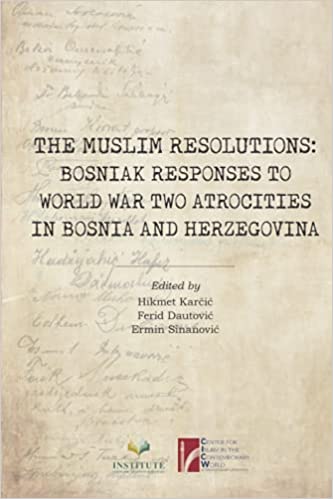
The Muslim Resolutions: Bosniak Responses to World War Two Atrocities in Bosnia and Herzegovina covers “the Muslims resolutions” in 1941, i.e., the Bosniak elites’ condemnation of the Nazi-puppet regime’s policies: using it as an opportunity for seeking Bosnia’s autonomy, hoping in this way to improve the country’s position and the security of their people. They did so through the resolutions included in this book, which were initiated and signed by members of the Bosniak establishment, the clergy and the judicial and economic elites, who sought to distance themselves from the Ustasha regime. In fact, most of the people to actually sign these resolutions were members of El-Hidaje, the Association of Muslim Clergy. The resolutions played a large role, not only during the war but in the post-war era too, as the struggle for Muslim identity and nationhood got underway. They are one of the few cases in the region, perhaps the only, of such atrocities being condemned and criticized by the elite of a “people without a state.”
ABOUT THE AUTHOR:
Hikmet Karčić is a genocide scholar based in Sarajevo, Bosnia and Herzegovina. He is a Researcher at the Institute for Islamic Tradition of Bosniaks (IITB) in Sarajevo and a Senior Fellow with the Center for Global Policy (CGP) in Washington, D.C. He was the 2017 Auschwitz Institute for Peace and Reconciliation-Keene State College Global Fellow.
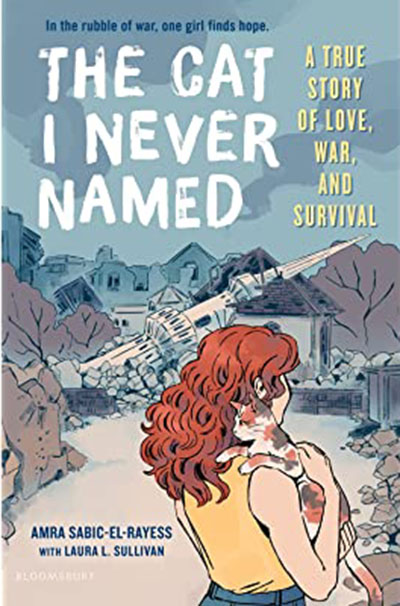
The Cat I Never Named is a personal account of a Bosnian genocide survivor, whose family and friends were slaughtered because of their Muslim heritage during the Serbian siege on the city of Bihać. The memoir bravely wrestles with the rawness of human emotion in times of unembellished agony, exposing the ways war tests humanity. It is a witness of how dangerous visceral ethnic, racial, and religious hatred is. The critically acclaimed book explores ideas of populism, Islamophobia, and discrimination, and it covers themes related to narratives of hatred built around Muslim identities.
ABOUT THE AUTHOR:
Amra Sabic-El-Rayess is professor, author and activist who grew up in Bihac, Bosnia and Herzegovina. After surviving ethnic cleansing and 1,150 days under the Serbs’ military siege, she emigrated to the United States in 1996. By December 1999, she earned a BA in Economics from Brown University. Later, she obtained two Masters degrees and a Doctorate from Columbia University. Currently, she is an Associate Professor of Practice at Columbia University’s Graduate School of Education, in the Education Policy and Social Analysis Department. Her scholarship focuses on mechanisms and factors that drive societies towards social disintegration and what role education can play in rebuilding decimated countries.
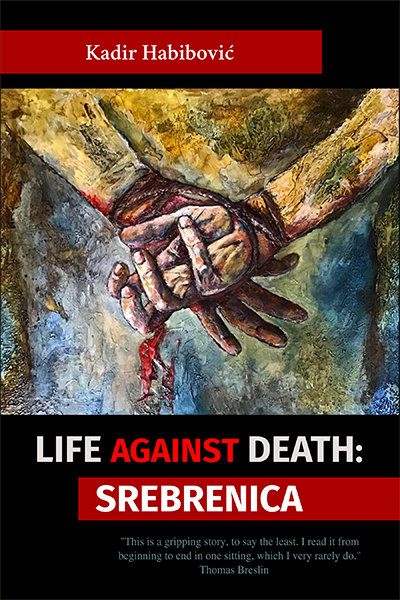
This is a gripping, intense story of how a man had barely survived the Srebrenica genocide. The book dictates how he did so by drawing the strength to survive not only from his desire to be reunited with his Bosniak family, but also from the inspiration of his religious sensibility and his desire that the genocide be remembered and justice be served one day. Imagine your town instead of my town, Srebrenica; your people instead of my people, and your name instead of my name. Then form your own judgement and try to answer this question loudly and without fear, so that everyone hears: “What did THEY do to the innocent people of Srebrenica?
ABOUT THE AUTHOR:
Kadir Habibovic was born on May 25, 1964 in Srebrenica. He worked in the Srebrenica bauxite mine until the aggression on Bosnia and Herzegovina began. He managed to reach the free territory on July 27, 1995, after the fall of Srebrenica. In his book, he describes in detail the killing of his fellow citizens that he survived. Kadir left Bosnia and Herzegovina as a refugee and he now lives in northwestern Europe. His book is a result of his commitment to testify about an evil that the world must know about.
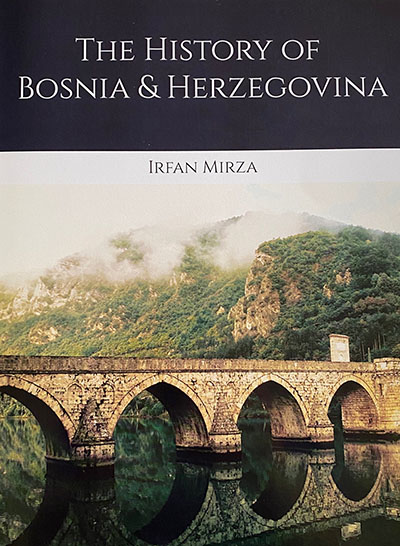
Written by award-winning author, Irfan Mirza, The History of Bosnia & Herzegovina 2nd ed. is a brilliant, enlightening book that traces the origins of the people of Bosnia and Herzegovina from the days of the first humans in Europe to the modern era. Thoughtfully written, this eloquent narrative presents a refreshing perspective on history, drawing on academic research from hundreds of sources and modern scientific analysis.
ABOUT THE AUTHOR:
Irfan Mirza is a two-time international award winning writer, college lecturer, and Chair of Education at the Bosnian American Institute. He published his first book on Bosnia-Herzegovina at the start of the war in April 1992. From ’92 to ’94, he served as a humanitarian program director followed by becoming an advisor to the UN in Bosnia-Herzegovina. After nearly three decades of immersion in the Bosnian culture and four years of historical research, Irfan Mirza was able to compound his effort into a publicly-available book.
